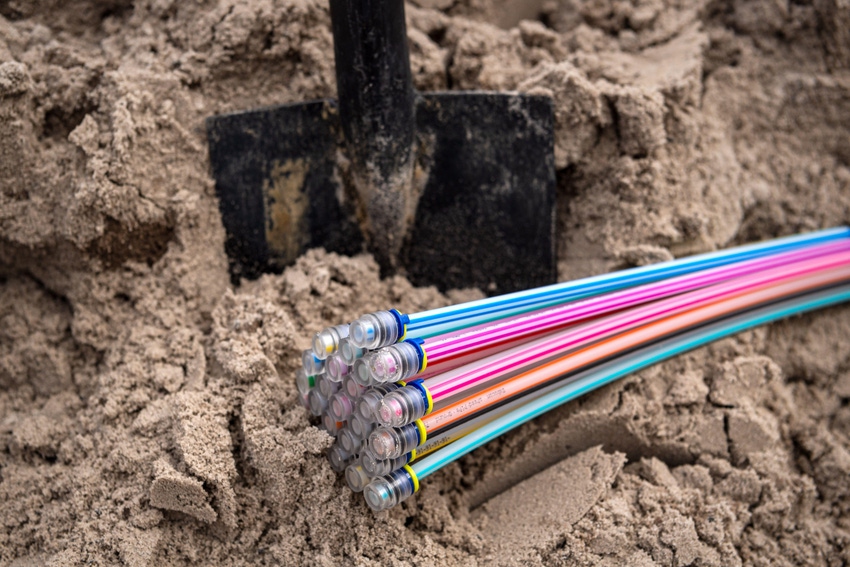The Buildout: New Mexico taps Comcast, electric co-ops for broadband grants
This week in broadband builds: New Mexico awards $39 million for broadband pilot, Ritter partners with Jonesboro, Arkansas, Virginia's Pipers Gap Fiber Project gets funds – and more.

The Buildout is a column from Light Reading tracking broadband network deployments. This week we're tracking fiber and fixed wireless builds reaching roughly 50,000 locations across the US. Send us your news right here. Keep up with every installment of The Buildout here.
New Mexico announced $38.6 million in funding to four providers through its Connect New Mexico Pilot Program. The state funding will be matched by $28.3 million "in nonstate funding" for a total of $66.9 million. The four awards were granted to Comcast, Central New Mexico Electric Cooperative, Ethos Broadband and Socorro Electric Cooperative. The buildout is expected to reach "more than 13,400 homes, businesses, farms, ranches and community institutions," according to a press release from Governor Michelle Lujan Grisham's office, which noted it's the state's "most ambitious broadband expansion effort in history." This is the first batch of funding to be delivered from the state's $120 million Connect New Mexico Pilot Program, funded through the American Rescue Plan. Notably, voters in New Mexico approved a ballot measure last week that exempts Internet infrastructure projects from the state constitution's ban on "lending, pledging credit, or donating to any person, association, or public or private corporation." The governor's office said it's accepting applications for the second wave of funding through December 9, 2022, and for the third wave through February 27, 2023.
Metronet has kicked off construction in Findlay, Ohio. The two-year construction project intends to bring Metronet's fiber network citywide and will connect its first customers in fall of 2023, according to a press release.
Ritter Communications and the city of Jonesboro, Arkansas, are embarking on a $60 million citywide fiber buildout. Ritter will invest $45 million and will partner with the city "to seek an additional $10-15 million from state and federal sources that will be required to complete the citywide build-out," according to a press release. With those funds, the buildout will take up to three years and aims to deliver broadband of up to 1 Gbit/s to every household. As part of this investment, Ritter said it will also open two in-person customer care centers. Earlier this year, Ritter was awarded eight rural broadband installation grants by the Arkansas Legislative Council for roughly $44 million, made available through the Arkansas Rural Connect (ARC) program and funded by the American Rescue Plan.
A partnership between Midco, Land O'Lakes and the Crystal Valley farm cooperative will see 1,200 rural residents of Hope, Minnesota, and surrounding areas gain access to broadband. According to a press release, the network will be a mix of fiber and wireless and will deliver speeds of 100/20 Mbit/s. The partnership is part of Land O'Lakes American Connection Project through which the company is supporting members' efforts to bridge the digital divide.
Comporium, a privately held ISP in South Carolina, announced last week that its services are now available to roughly 160 residents of Fort Lawn, South Carolina. In a press release, the company said the upgrade was "months" in the making and the result of state broadband grants. Overall, through a mix of public and private investments, Comporium has brought its broadband services to more than 1,650 premises in South Carolina this year. The company said it has also "set up free public wi-fi access at the Fort Lawn Community Center as an additional service to the community."
Senators Tim Kaine and Mark Warner (both D-VA) announced an award of $582,479 for the Pipers Gap Fiber Project: an effort to build 8.2 miles of fiber to expand broadband access through a mix of fiber and wireless service in Carroll County, Virginia. The project is expected to reach 402 unserved households and is funded through the federal Appalachian Regional Commission (ARC).
Kinetic by Windstream announced a $40 million public-private partnership to build out a fiber network in Lowndes County, Georgia. The network construction costs will be split between Windstream, which is investing $18 million, and the state, which is contributing $22 million in grants. State funding comes from the Coronavirus State and Local Fiscal Recovery Funds program, part of the federal American Rescue Plan. The network build will start in 2023 with a deadline for completion by 2026 and will cover 18,000 unserved and underserved homes in the rural region.
Michigan fiber provider 123.net was awarded $17.7 million from the state's American Rescue Plan funds for a project to deliver broadband to roughly 12,000 unserved premises in Allegan County. The full project is expected to cost roughly $70 million, with the initial grant to be "combined with provider capital and state/federal funding." Once that funding is received, the project is reportedly expected to take between 18-24 months to roll out.
Kansas recently awarded $15.7 million to seven service providers to connect more than 1,900 homes, businesses and other public institutions to broadband. The work is expected to take place over the next two years. The funding comes from Kansas' share of Coronavirus Capital Projects Funds (CPF). According to a press release, Kansas received 141 applications from service providers requesting $693 million in funding for broadband infrastructure projects. All of those applicants will be eligible for the next two rounds of funding. Those selected in this round will contribute matching funds, bringing the total project cost for this round of projects to $19.7 million. The service providers awarded to deliver last-mile broadband include: Craw-Kan Telephone Cooperative ($4.6 million to connect 385 premises), Giant Communications ($895,295 to connect 163 premises), MT Networks LLC ($2.6 million to connect 326 premises), Nex-Tech ($541,320 to connect 64 premises), Pioneer Communications ($202,484 to connect 54 premises), S&A Telephone ($3.7 million to connect 421 premises) and Totah Communications ($3.2 million to connect 500 premises).
Read more about:
The BuildoutAbout the Author(s)
You May Also Like











